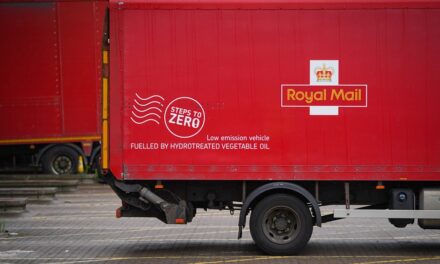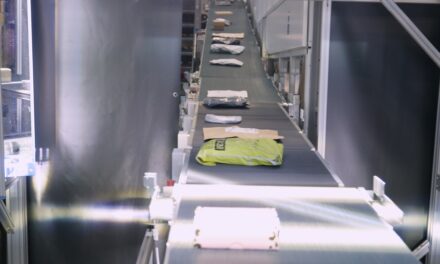
The week that was: 26 November 2010
USPS and union agree extension, Greene adamant on Royal Mail progress, and Deutsche Post DHL eyes growth… Good afternoon, and welcome to our weekly news round-up. Post&Parcel extends its best wishes to our American readers who are celebrating Thanksgiving. Let’s have a look at who made the headlines this week.
Starting in the US, where the Postal Service has agreed to extend current working arrangements as it continues discussions with the American Postal Workers Union (APWU). Negotiations between the two sides are now set to continue to December 1, after this week’s extended contract deadline passed with no agreement. However, discussions with the National Rural Letter Carriers Association, which ground to a halt at the weekend, look set to remain in stalemate. The full terms of the 2006-2010 Collective Bargaining Agreement with the APWU will continue for the rest of this month, the union confirmed. The Agreement had been due to expire on November 20. “The future of 220,000 postal workers and their families is at stake,” said APWU president Cliff Guffrey. “We are committed to achieving a beneficial contract, and ask for the continued support of union members.” Key sticking points centre on USPS proposals to counter some of its $8.5bn annual losses and declining mail volumes with a more “flexible” workforce. Unions are objecting to proposals for wage freezes and benefit cuts, along with a move to a five-day week. The APWU said it wants to see less work outsourced to the private sector or turned over to managerial personnel, citing record productivity levels being achieved by USPS workers. “The union’s strategy has been to offer proposals that will also benefit the Postal Service,” insisted Guffrey. “Returning work to our members makes sense because our members can perform the work more efficiently and less expensively than subcontractors and supervisors.”
In the UK, Royal Mail’s chief executive Moya Greene claimed that criticism of the operator’s modernisation programme was unfair. Greene said the company is making “great progress”, and also praised the government over plans of reform. Speaking at an industry conference earlier this week, Greene said: “I have heard a lot about Royal Mail being slow to modernise, being inefficient, and the necessity to keep Royal Mail under a great deal of pressure to become more efficient. What I have seen does not correspond to what I have heard. It is not ‘fair comment’ to talk about Royal Mail as if it were a company uninterested in change, unable to modernise, as if it were a company that did not understand the efficiency imperative that faces everybody in this industry.” The chief executive said it is a “momentous time in the history of the company”, and an important phase for universal service providers, in order to continue to provide “great levels of service”. In defence of the company, Greene added: “Royal Mail has surpassed any other modernisation programme I have seen. It is a challenge for me to listen as I hear the kind of criticism we have received.” Greene concluded by saying that “now is the time for very significant regulatory reform”. She said: “We respect regulation. We respect there is a need and a value in regulation, but we have been waiting for a long time for regulatory reform. We have been waiting since 2007, and for all of that time, we have not been able to see the road to real viability in this regulatory framework we already have.”
Across the Channel, Deutsche Post DHL said it intends to “significantly increase its earnings” in the coming years and become “the industry’s trendsetter in profitability”. After announcing its Strategy 2015 based on the two pillars mail and logistics last year, the Group now further specified its targets during an investor conference held today in Frankfurt. For its DHL divisions the Group intends to generate annual EBIT growth by an average of 13 to 15% through 2015, based on the expected operating profit of more than EUR 1.3bn this year and assuming the absence of another major global economic downturn. In the process, which will be impacted in the next two years by investments in the further development of the existing business, the company expects earnings momentum to accelerate towards the end of the period. The MAIL division is to stabilise its annual earnings contribution at about EUR 1bn. During the current year, it is expected to generate between EUR 1.1bn and EUR 1.2bn. “Thanks to our products and services, we are already the leader in many areas. We now intend to set the pace in the industry in profitability terms as well,” Frank Appel, the CEO of Deutsche Post DHL, told investors and analysts in Frankfurt. “In recent years, we have laid the strongest foundation for this by introducing far-reaching efficiency-enhancing measures. In future years, our focus will be directed clearly at generating growth – in terms of both earnings and revenues.”
And finally…
Our numbers are growing rapidly, so come and join Post&Parcel on Twitter!












